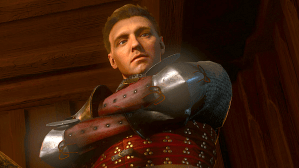HBO’s popular series Westworld is full of mysteries and secrets. Occasionally, clues to the show’s biggest mysteries can be found in an obvious location: the episode title.
Videos by ComicBook.com
This week’s episode is titled “Virtù e Fortuna” a reference to the theories of influential Renaissance philosopher Niccolo Machiavelli.
Machiavelli is best known for his theories on political science, especially those found in his seminal work The Prince, which served as a practical guide on how to rule in an autocratic government. Machiavelli’s work is often associated with unscrupulous politicians and leaders as he argues for a pragmatic and practical approach to ruling as opposed to using one’s virtues as a guide. However, The Prince also discusses the concepts of “free will,” a central theme in Westworld.
“Virtù” and “Fortuna” are two concepts in The Prince and other Machiavelli works, that translate to “virtue” and “fortune.” In Machiavellian concepts, “Virtù” refers not to classical virtues like fortitude and justice, but rather the quality that makes a good leader in Machiavelli’s eyes. “Virtù” is the ability to be ruthless when necessary, but also to be “good” when the situation arises. A leader with “virtù” has the ability to make whatever decision is needed to keep their country stable and to advance their goals.
“Virtù” is directly opposed by “fortuna,” which Machiavelli associate with chance or luck. “Fortuna” means the things that a good leader can’t control, but they can overcome with enough “virtù.”
The best analogy that Machiavelli gives about the relationship between “virtù” and “fortuna” is that of an angry river that destroys all in its path when it floods. The river is “fortuna,” a force that can’t be contained. However, the dangers of a flooding river can be minimized with levies, good planning, and other contingencies. A leader with “virtu” can’t stop the circumstances that would cause a river to flood, but they might be able to overcome them by making the right decisions in advance.
Basically – a ruler’s success comes down to maximizing “virtù” and minimizing “fortuna.” In other words, a ruler is ultimately successful by maximizing one’s control over a situation and minimizing the effects of chance. Rather than letting things happen to your life/country/people, a good ruler does what they can to take control of a situation.
These concept also extends to the concept of free will. Can a person overcome the circumstances set before them, or is a person doomed to a predetermined fate due to the fickleness of fortune? In other words, can a person overcome their “destiny” due to sheer force of will?
So, what does this all have to do with Westworld? Well, in many ways Dolores is a classically Machiavellian ruler. Dolores is capable of seeing both great beauty and great destruction in the world. And while many see Dolores’s actions as ruthless, she certainly believes that her actions are necessary for the protection of the other hosts from the humans who have abused them for years. Maybe the title refers to Dolores’s attempts to overcome the fickle actions of humans by making extra contingencies or plans in some way?
Clearly, Westworld fans are about to get some sort of lesson in Machiavellian philosophy. We’ll see who shows true “virtù” tonight at 9 PM ET on HBO.








